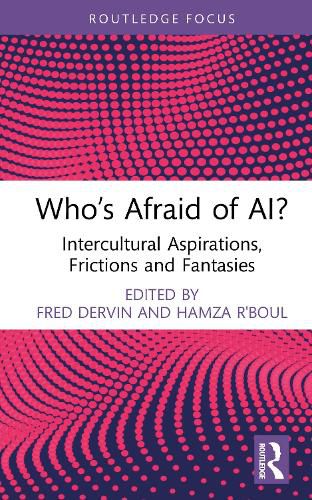Readings Newsletter
Become a Readings Member to make your shopping experience even easier.
Sign in or sign up for free!
You’re not far away from qualifying for FREE standard shipping within Australia
You’ve qualified for FREE standard shipping within Australia
The cart is loading…






This timely edited volume challenges the potentially simplistic blame narratives surrounding AI, urging instead a shared ethical responsibility among users, researchers, policymakers and others.
Rejecting the notion of AI as an autonomous 'evil', the book interrogates how human choices embedded in power structures, colonial legacies, and ideological frameworks can shape AI's impact on intercultural relations. Through decolonial critiques, dialogic experiments, and perspectives from the Global South, the contributors expose algorithmic biases, epistemic injustices, and governance gaps, while advocating for collective agency. From African Ubuntu ethics to Moroccan linguistic and cultural equity, and the political economy of creative industries, the book portrays AI as a mirror of human complexities and contradictions, rather than a scapegoat.
A vital resource for students and scholars of intercultural communication, education and research, this book calls for reflexive engagement with AI, emphasising co-accountability over unfounded dread.
$9.00 standard shipping within Australia
FREE standard shipping within Australia for orders over $100.00
Express & International shipping calculated at checkout
This timely edited volume challenges the potentially simplistic blame narratives surrounding AI, urging instead a shared ethical responsibility among users, researchers, policymakers and others.
Rejecting the notion of AI as an autonomous 'evil', the book interrogates how human choices embedded in power structures, colonial legacies, and ideological frameworks can shape AI's impact on intercultural relations. Through decolonial critiques, dialogic experiments, and perspectives from the Global South, the contributors expose algorithmic biases, epistemic injustices, and governance gaps, while advocating for collective agency. From African Ubuntu ethics to Moroccan linguistic and cultural equity, and the political economy of creative industries, the book portrays AI as a mirror of human complexities and contradictions, rather than a scapegoat.
A vital resource for students and scholars of intercultural communication, education and research, this book calls for reflexive engagement with AI, emphasising co-accountability over unfounded dread.